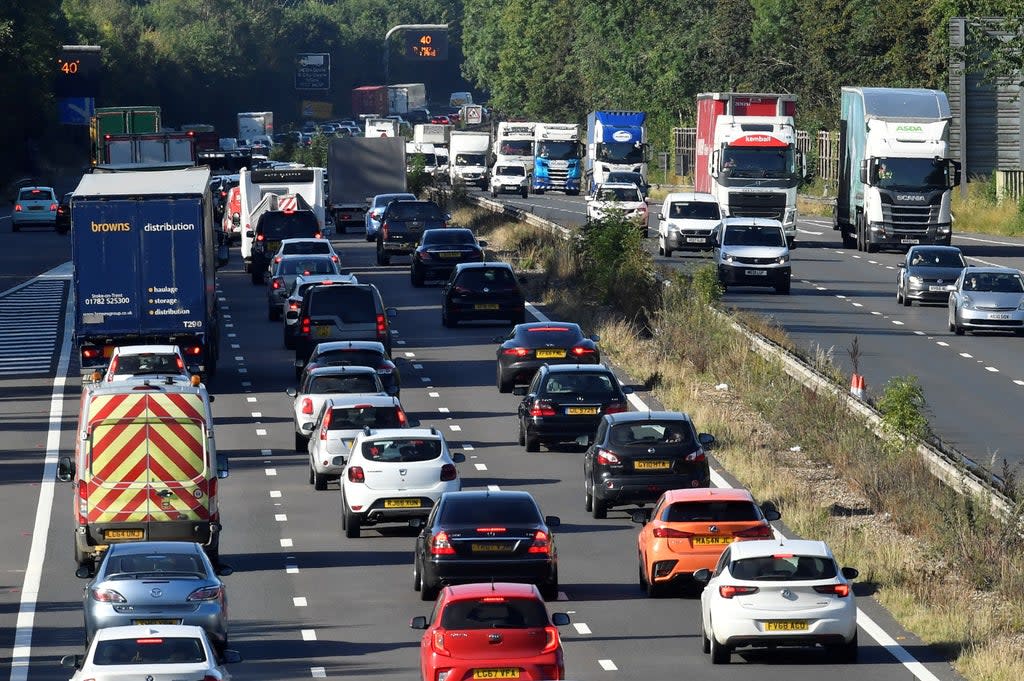Use of toxic leaded petrol officially ends across the world as Algeria uses its final stockpile

The world has officially ended the use of toxic leaded petrol, said the UN on Monday, after service stations in Algeria – the last country to use the highly polluting fuel – stopped providing it last month.
This official end of the use of the toxic fuel follows a nearly two-decade-long campaign by the UN Environment Programme (UNEP) and its partners to eliminate the use of lead in petrol, which posed one of the most serious environmental threats to human health.
Toxic leaded petrol includes the chemical Tetraethyl lead, that was first used in 1923 as an anti-knocking agent to enable the even burning of fuel. By the 1970s, almost all petrol produced around the world contained this chemical.
Numerous studies published across the world have shown leaded petrol causes heart disease, stroke and cancer.
It is also known to affect brain development, especially in infants, with research suggesting the chemical’s use in petrol reduced 5-10 intelligence quotient (IQ) points in children.
Early studies had estimated that banning the use of leaded petrol could prevent more than 1.2 million premature deaths per year and increase IQ points among children, which would in turn help decrease crime rates and save $2.45 trillion for the global economy.
While most high-income countries prohibited the use of leaded petrol by the 1980s, almost all low- and middle-income countries, including some Organisation for Economic Co-operation and Development (OECD) members, were still using leaded petrol as recently as 2002.
In some developing countries, such as the sub-Saharan African nations, a collaboration between governments, businesses and the UN helped bring about an end to the use of leaded petrol.
“Ghana was one of five west African countries to join early sub-regional workshops and declarations,” Kwaku Afriyie, Ghana’s minister of Environment Science, Technology and Innovation, said in a statement on Monday.
Mr Afriyie said his country had become determined to free its fuel from lead, with the help of the Partnership for Clean Fuels and Vehicles (PCFV), a global public-private initiative promoted by UNEP.
“Following PCFV’s media campaigns, reports, studies, exposing illegalities, and public testing done to expose high levels of lead in the population’s blood, Ghana became ever more determined to free its fuel from lead,” Mr Afriyie said.
“Today, we celebrate the culmination of a global, decades-long effort to rid the world of lead in petrol. This achievement will prevent more than one million premature deaths each year and protect children from exposure to lead,” UN Secretary-General Antonio Guterres said in a tweet on Monday.
Today, we celebrate the culmination of a global, decades-long effort to rid the world of lead in petrol.
This achievement will prevent more than 1 million premature deaths each year & protect children from exposure to lead.
Let’s keep building a cleaner, greener future for all. pic.twitter.com/GHN4M5ZzB0— António Guterres (@antonioguterres) August 30, 2021
The official end of leaded petrol worldwide this year, however, has not come without its costs. Leaded petrol has contaminated air, dust, soil, drinking water and food crops for almost a century.
Despite the progress in eliminating the use of leaded petrol, the UN said the transport sector is still responsible for nearly a quarter of energy-related global greenhouse gas emissions and is set to grow to one third by 2050.
It estimated 1.2 billion new vehicles hitting the road in the coming decades with many of these still using fossil fuels, thus contributing to more global warming and air pollution.
Earlier this month, an international team of 234 climate scientists from 66 countries warned the world will “more likely than not” reach 1.5C above pre-industrial levels sometime over the next 20 years, with an increased risk of accelerated global warming if little is done to tackle rapidly rising greenhouse gas emissions.
The findings were part of the first chapter of the sixth assessment report by the Intergovernmental Panel on Climate Change that warned of the consequences of the global temperature increase, including more frequent extreme weather events.
The UN urged governments, businesses and civil society to take inspiration of the achievement of eliminating leaded fuel to ensure the adoption of cleaner fuels and vehicles standards globally that can help reduce global carbon emissions by more than 80 per cent.
“Overcoming a century of deaths and illnesses that affected hundreds of millions and degraded the environment worldwide, we are invigorated to change humanity’s trajectory for the better through an accelerated transition to clean vehicles and electric mobility,” Inger Andersen, UNEP’s executive director, said in a statement.
Read More
Thousands could be without power for weeks in Hurricane Ida aftermath
Two dead and a million without power in aftermath of hurricane Ida
Eleven XR members arrested after blocking Tower Bridge
Hurricane Ida makes landfall as ‘extremely dangerous’ Category 4 storm
Dozens of Extinction Rebellion protesters enter Science Museum over Shell sponsorship

 Yahoo News
Yahoo News 
